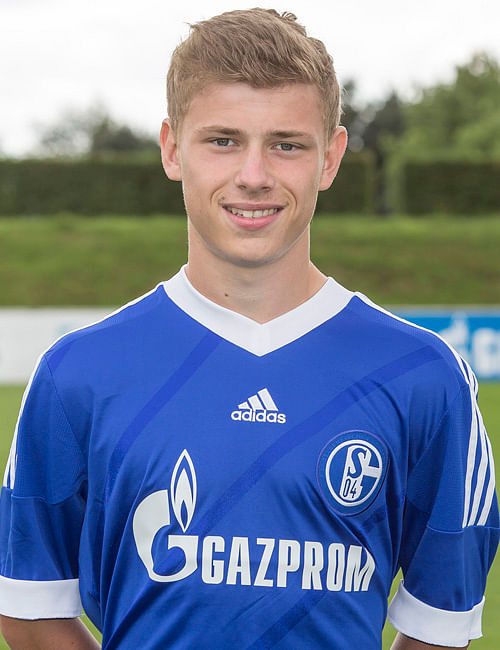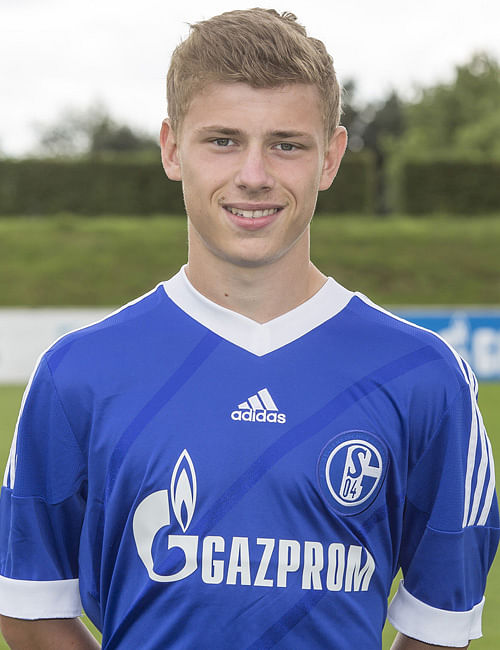
Max Meyer: The Next German Soccer Wonderkid?
 The average age of the German national squad at the Euro 2008 held in Austria and Switzerland was 26.78 years. But four years later, when the Euros were held in Poland and Ukraine, the average age of the same side was 24.52 years. Germany overhauled their youth development system in 2002 after their disappointing Euro 2000 performance – and few can argue that the results of this move are not beginning to show.
The average age of the German national squad at the Euro 2008 held in Austria and Switzerland was 26.78 years. But four years later, when the Euros were held in Poland and Ukraine, the average age of the same side was 24.52 years. Germany overhauled their youth development system in 2002 after their disappointing Euro 2000 performance – and few can argue that the results of this move are not beginning to show.
Germany has, over the last few years, become an exciting place for the best clubs across Europe to snap up talented youngsters in a way that has never been seen before. Max Meyer is one such youngster, but will more likely than not be a stand-out player soon enough, for a number of reasons.
Max Meyer was born in Oberhausen, a town near Dortmund in the north-western part of Germany which was also in the news for housing Paul the Octopus. Meyer moved from MSV Duisburg, a 2. Bundesliga team located close to where Meyer was born, to Schalke in 2009.
Born in 1995, at 5’6″ he might not seem a force to reckon with, but one would be foolish to ignore his exploits because of his height – especially when the best player in the world is arguably a diminutive Argentinian who comes in at 5’7″. Schalke’s Sporting Director Horst Heldt was quoted as saying that Meyer was one of the most promising talents in the whole of Germany, which is why Schalke were quick to tie down Meyer on a long term deal keeping him at the club until 2015.
In the 2011/12 season, Meyer spent an average of 71.6 minutes on the pitch in 46 games, where he scored 24 goals and racked up 17 assists for both club (U-19s) and country (U-17s). Meyer scored at least one goal every 137 minutes, a respectable statistic when you take into account his age.
Meyer made his debut for Germany’s under-17 side in October 2011 in a 5-0 victory over Estonia. He has since made 11 appearances in the black and white of Germany with 6 goals and 1 assist to his name – the highlight of which were his two braces against both Bulgaria and France in 2012, leading Germany to victory on both occasions.
Meyer is blessed with the rare ability of being able to use both his feet comfortably. Meyer is a great dribbler and possesses a good first touch, but what puts him a cut above the rest is his ability to find and utilize space effectively in the final third of the pitch, making him an ideal creative playmaker or an inside forward. Meyer is also flexible in how he can play as a winger if necessary, similar to players like Mario Gotze or Toni Kroos. Considering his strengths, it would not be surprising to see him thrive in a central midfield role at some point in the future.
Above all, while he has the ability to take on defenders on his own if he so pleases, Meyer remains a good, selfless team player, showing that he can and will pass up front in situations where his teammates are in better positions to score.
Horst Heldt has previously stated that Meyer shall be brought to the Schalke first team early. With the youngster showing so much promise, it will be interesting to see if Meyer rewards Schalke’s faith in him by being consistent at the highest level. That being said, Meyer has so far proven to be a player to look out for, and do not be surprised to see him representing Schalke and Germany at the highest level.